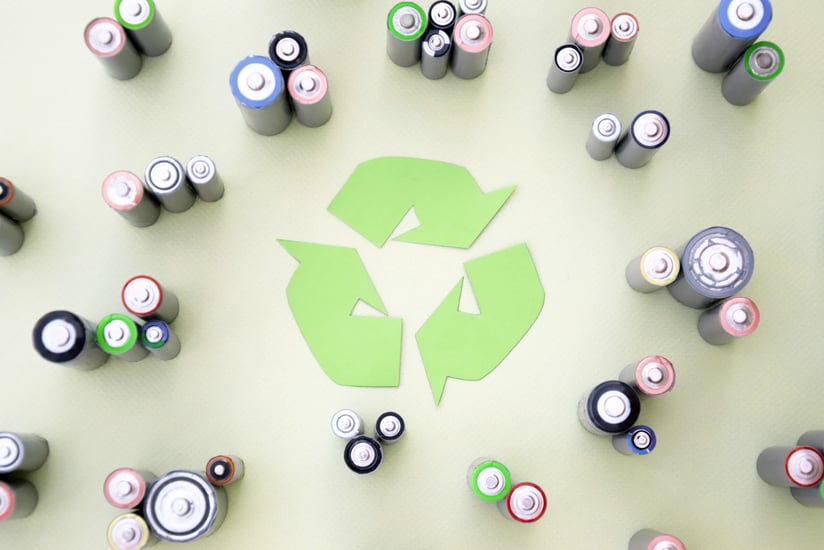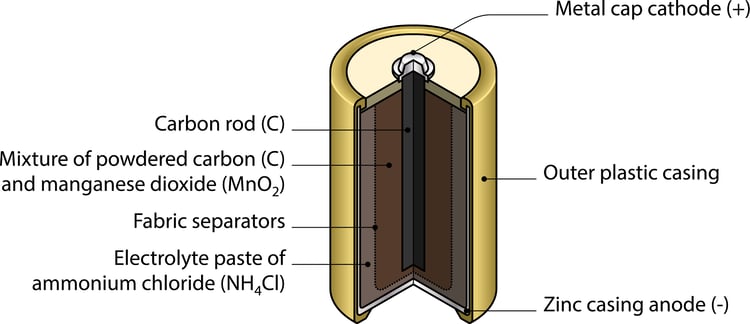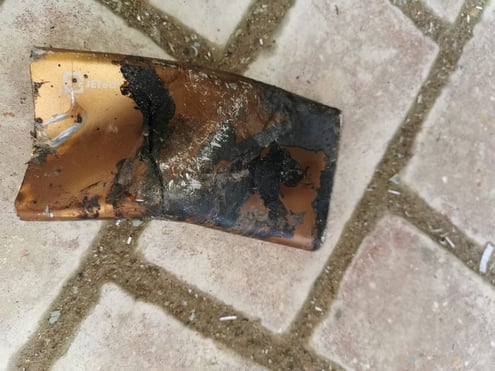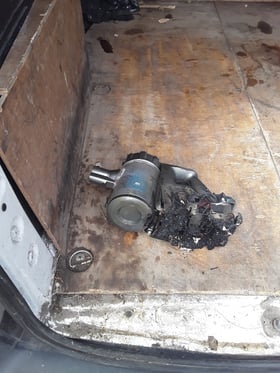The importance of the safe disposal of batteries

The importance of the safe disposal of batteries
What is a battery?
Batteries are an integral part of our everyday lives, providing us with convenient and portable power for a variety of devices and appliances. However, many don't stop to consider the complexity of what lies beneath their exterior.
So, what is a battery and how does it work? A battery is a self-contained power source that can transform chemical energy into electricity. It is composed of two poles: a negative end (anode) and a positive one (cathode). A connection between two points creates a circuit. Electrons then flow through this circuit, generating an electrical current.

Batteries are the power behind a huge range of items from the very small to the very large, including everyday electronics such as remote controls, toothbrushes, watches and laptops, to specialised medical equipment, solar panels, and emergency power systems. Even some greeting cards have concealed batteries!
There are different types of batteries, including industrial batteries used for large-scale power storage, as well as standard alkaline batteries, rechargeable nickel-cadmium batteries, and the increasingly popular rechargeable lithium-ion batteries. Lithium-ion batteries are becoming more commonly used in electronic devices and vehicles due to their long lifespan.
Vapes are another common device that use lithium-ion batteries, and as the use of e-cigarettes continues to rise, there is growing concern about how they can be safely disposed of.
The importance of proper battery handling
The reliance on batteries in our daily lives is increasing, and it is crucial to understand their proper use, disposal, and recycling to ensure both their efficiency and environmental sustainability.
While batteries are easily accessible for purchase at many retailers, the collection and recycling of used batteries can be more problematic. While some larger retailers may offer battery recycling programs, many smaller retailers may not have the resources or infrastructure to collect used batteries for recycling. As batteries are considered a hazardous waste it is important for individuals and businesses to take responsibility for proper battery disposal and to seek out local recycling options to ensure that all batteries are disposed of safely.
Proper battery handling, storage, and disposal are essential to prevent potential hazards such as fire, injury, toxic fumes, and hazardous material being released into the environment, contaminating groundwater and causing damage to ecosystems and wildlife.
Statistics show that nearly 700 fires a year in the UK are caused by batteries that have been thrown into household waste [source] 45% of householders are unaware of the fire risk if batteries are wrongly disposed of, and 40% are unaware of any information on safe recycling. [source]
“We have experienced incidents at our recycling facilities and in a waste collection vehicle where batteries, thrown away with other recycling, have ignited. If it was not for the quick reaction of our staff to extinguish them, these could have caused serious injury to people not only from fire but also noxious fumes, and damage to the plant.”
Henry Newbery, Recycling Manager at Hills Waste Solutions


Images : Examples of incorrectly disposed batteries - one ignited at Hills recycling facility and the other in a waste collection vehicle but were both extinguished before causing any serious harm.
To avoid such incidents, batteries should be stored in a cool, dry place and away from direct sunlight, as exposure to heat and moisture can lead to battery damage and leakage. Used batteries should never be disposed of irresponsibly; such as incinerating or crushing them, or thrown away in general waste and non-specific recycling containers as this can potentially cause fires during transportation and handling, or end up in landfills, causing environmental harm. Instead, used batteries should be recycled at designated collection points or facilities. Some batteries, such as lithium-ion batteries, require special handling and disposal methods due to their potential to cause fire and should not be mixed with other types of batteries or waste.
It is important to be aware of regulations and laws surrounding the safe disposal of batteries - businesses could face a fine of up to £5,000 if they fail their duty of care [source]. More information on what is required can be found on the UK government website under Regulations: waste batteries.
Use our trusted waste management services for your battery waste
Hills Waste are dedicated to ensuring local businesses fulfil their duty of care and compliance with legislation. We can safely handle and dispose of most battery types. For more information on how we manage hazardous waste, visit our dedicated page.
